If you are interested in being at the forefront of the complex and fascinating industry that is nuclear engineering, you are going to need to complete a rigorous academic program and undergo extensive training to get there, which is why we compiled a list of the best affordable Bachelor’s in Nuclear Engineering degrees for your consideration. While nuclear power is typically explained as a “fancy way to boil water,” it is vastly more complex than that, and part of a nuclear engineer’s job is to understand how to safely maintain and operate the advanced technologies such as fusion power generators and fission that make nuclear power possible. Nuclear engineers may also work on deep-space propulsion systems and probes, in nuclear medicine, on semiconductor devices and more. However, to get started, you will first need to complete a Bachelor’s in Nuclear Engineering. Read on to learn more about this program, salary expectations and the top schools for earning an undergraduate nuclear engineering degree.
Methodology
In order to compile a list of the 25 best affordable Bachelor’s in Nuclear Engineering degree programs, we first needed to gather information about the schools and developing a specific set of ranking criteria by which we could award points. To accomplish this, we used the College Navigator tool at the National Center for Education Statistics (NCES) and searched for nuclear engineering bachelor’s degrees. We narrowed down the initial pool of 30 search results into the top 25 programs based on the methodology. We awarded points based on three core metrics related to affordability, class size and student success using information obtained from the NCES. We also double-checked our data with each school’s website to ensure accuracy.
Average Cost of Attendance
Since this ranking revolves around the most affordable Bachelor’s in Nuclear Engineering programs, it goes without saying that one of the factors we would consider would be each school’s tuition rates. As you compare programs, however, try to avoid selecting the cheapest program possible simply for the sake of saving money. Instead, make sure you choose an institution based not only on affordability but also on what the school has to offer such as areas of concentration, extracurriculars, internships and opportunities for research. For this section, we ranked tuition based on how much an in-state student would be expected to pay for one full year of academic study using tuition information provided by the NCES. Although not used in the awarding of points, out-of-state tuition rates are also included below.
Points:
Under $7,500: 5 points
$7,500 to $15,000: 3 points
$15,001 and above: 1 point
Student-to-Faculty Ratio
Next, we awarded points based on student-to-faculty ratios from NCES, providing the highest number of points to colleges and universities that reported the lowest ratios. Although such is not always true, in most cases, schools with low ratios and, therefore, smaller class sizes may be more likely to offer opportunities for mentoring, individualized studies, increased academic support and the chance for students to really get to know their peers and professors. While this may be what one student is looking for in a program, another may thrive better in a larger setting in which or she can complete the curriculum requirements without too many interactions with others. Therefore, think about your own academic background, your academic needs and learning preferences when considering student-to-faculty ratios.
Points:
10:1 or less: 3 points
11:1 to 15:1: 2 points
Greater than 15:1: 1 point
Graduation Rate
The last factor undergraduate students often look at when considering academic programs is each school’s graduation rate. In most cases, this number typically represents the satisfaction and, therefore, the success of an institution’s student body. In other words, undergraduates who are happy with their academic experience are more likely to stay enrolled at that school and graduate with their degree, while those who are unhappy might leave and complete their degrees elsewhere. A low graduation rate could be due to any number of things such as poor or nonexistent academic support, unaffordable programs or low-quality faculty — or something else entirely. Therefore, we awarded the highest number of possible points to colleges and universities that reported the highest graduate rates from NCES as outlined below.
Points
More than 50 percent: 3 points
Between 30 percent and 50 percent: 2 points
Less than 30 percent: 1 point
Ranking Top 25 Best Affordable Bachelor’s in Nuclear Engineering Degrees
25. University of Illinois
Urbana, Illinois
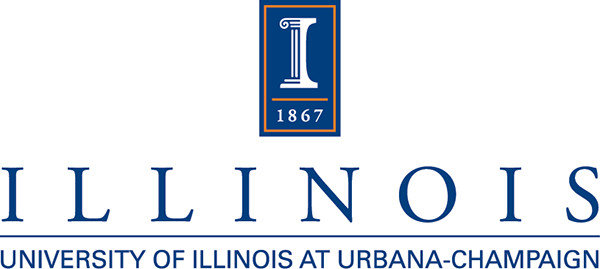
Points: 5
Program Website
Founded as a land-grant institution in 1867, the University of Illinois is a public research university and the flagship campus of the University of Illinois System. U of I confers an affordable Bachelor of Science in Nuclear, Plasma and Radiological Engineering (NPRE) that requires 128 hours of study for graduation. The first two years of the curriculum of this low-cost bachelor’s program are comprised of coursework in nuclear energy systems, digital computer use, engineering sciences and basic sciences, while the third and fourth years are devoted to a technical concentration in one of three areas: radiological, medical and instrumentation applications; plasma and fusion science and engineering; or power, safety and the environment.
Degree Options:
Bachelor of Science in NPRE
In-State Tuition: $15,094
Out-of-State Tuition: $31,664
Student-to-Faculty Ratio: 20:1
Graduation Rate: 84 percent
24. Renssalaer Polytechnic Institute
Troy, New York

Points: 6
Program Website
Established in 1824 as the Renssalaer School, Rensselaer Polytechnic Institute is a private research university and a solid choice for undergraduates seeking a top-value nuclear engineering degree. RPI’s Bachelor of Science in Engineering includes concentrations in areas such as reactor materials, reliability and safety, thermal hydraulics, health physics, reactor engineering and fission reactor physics. Outside of the classroom, students of this top bachelor’s in nuclear engineering benefit from access to two world-class research facilities, a competitive Senior Design Program and a highly active student section of the American Nuclear Society. Graduates are in great demand for graduate study or for employment in national defense, medicine, fusion reactor engineering and space power propulsion.
Degree Options:
Nuclear Engineering, Bachelor of Science
In-State Tuition: $53,880
Out-of-State Tuition: $53,880
Student-to-Faculty Ratio: 13:1
Graduation Rate: 86 percent
23. University of Pittsburgh
Pittsburgh, Pennsylvania

Points: 6
Program Website
The University of Pittsburgh, founded in 1787 as the Pittsburgh Academy, is a state-related research institution of higher education and one of the most affordable universities for a nuclear engineering degree. Pitt offers a low-cost Bachelor of Science in Engineering in Engineering Science with a concentration in nuclear energy that builds a foundation in the basic theoretical concepts of energy removal, fuel depletion, reactor kinetics, reactor physics and nuclear physics. Students of this high-value university are required to choose an area of emphasis to complete the program such as physics, mathematics, material science and engineering, bioengineering or mechanical, industrial, electrical, civil and environmental or nuclear engineering.
Degree Options:
Major in Engineering Science With a Concentration in Nuclear Energy
In-State Tuition: $19,080
Out-of-State Tuition: $32,052
Student-to-Faculty Ratio: 14:1
Graduation Rate: 83 percent
22. Pennsylvania State University
University Park, Pennsylvania

Points: 6
Program Website
Pennsylvania State University is a land-grant, state-related doctoral research university that operates facilities and campuses across the state. Founded as the Farmers’ High School of Pennsylvania in 1855, Penn State offers two low-cost undergraduate programs in nuclear engineering: a Bachelor of Science in Engineering and a concurrent B.S. in Mechanical Engineering and B.S. in Nuclear Engineering. In addition to completing a comprehensive curriculum, students benefit from access to the longest-operating licensed research reactor in the U.S. — the Breazeale Nuclear Reactor. Undergraduates of this top-value bachelor’s program also gain professional experiences via a capstone design course in the form of an industry-sponsored project.
Degree Options:
B.S. in Nuclear Engineering
Concurrent B.S. in Mechanical Engineering and B.S. in Nuclear Engineering
In-State Tuition: $18,454
Out-of-State Tuition: $34,858
Student-to-Faculty Ratio: 14:1
Graduation Rate: 85 percent
21. University of Michigan
Ann Abor, Michigan

Points: 6
Program Website
Established in 1817, the University of Michigan is the oldest public institution of higher learning in the state and recognized as one of the most affordable universities for a nuclear engineering degree. UMich’s ABET-accredited Bachelor of Science in Engineering in Nuclear Engineering and Radiological Sciences provides undergraduates with tools and skills necessary for environmental, governmental, medical and industrial applications of nuclear radiation and processes. Undergraduates at this inexpensive university are encouraged to engage in research, and many third- and fourth-year students conduct projects and co-author papers in scientific journals. Graduates are prepared for master’s-level study in nuclear engineering or related fields or for employment in a socially relevant and challenging field such as national security, medicine or energy.
Degree Options:
Bahelor of Science in Engineering
In-State Tuition: $15,262
Out-of-State Tuition: $49,350
Student-to-Faculty Ratio: 11:1
Graduation Rate: 92 percent
20. Wilberforce University
Wilberforce, Ohio

Points: 6
Program Website
Students seeking a low-cost nuclear engineering degree may consider enrolling at Wilberforce University, a private, liberal arts, historically black university affiliated with the African Methodist Episcopal Church. The school’s Bachelor of Science in Nuclear Engineering provides a strong foundation in the energy sciences as well as laboratory experimentation and industrial experience through field trips and practical learning. The curriculum is comprised of core coursework in thermal hydraulics, the fuel cycle, power plant operations, nuclear power instrumentation and core neutronics as well as health physics, nuclear safety, numerical analysis and nuclear engineering. This economical B.S. in Nuclear Engineering culminates in a nuclear engineering design project in which students demonstrate what they have learned throughout the course of the program.
Degree Options:
B.S. in Nuclear Engineering
In-State Tuition: $13,250
Out-of-State Tuition: $13,250
Student-to-Faculty Ratio: 11:1
Graduation Rate: 18 percent
19. South Carolina State University
Orangeburg, South Carolina

Points: 6
Program Website
Established in 1896, South Carolina State University is the only public, historically black land-grant institution of higher learning in the state. A member-school of the Thurgood Marshall College Fund, SCSU confers a cost-effective Bachelor of Science in Nuclear engineering through a partnership with both the University of Wisconsin-Madison and North Carolina State University. Students complete 139 to 140 credit hours of study, including coursework in thermodynamics, fluid dynamics, nuclear reactor theory, nuclear energy and engineering, reactor design, nuclear-reacting engineering and ionizing radiation. Undergraduates of this top-value bachelor’s in nuclear engineering benefit from access to two state-of-the-art facilities: an environmental radiochemistry laboratory and a radiation science teaching laboratory.
Degree Options:
Bachelor of Science in Nuclear Engineering
In-State Tuition: $11,060
Out-of-State Tuition: $21,750
Student-to-Faculty Ratio: 16:1
Graduation Rate: 34 percent
18. University of New Mexico
Albuquerque, New Mexico

Points: 6
Program Website
Established in 1889, the University of Mexico is a public research university and the flagship campus of the University of New Mexico System. The high-value nuclear engineering degree at UNM provides undergraduates with broad training in the fundamentals of engineering, chemistry, physics and mathematics, followed by professional specialty courses in nuclear reactor safety and theory, radiation protection and detection, nuclear systems design and thermal hydraulics. Students of this cheap bachelor’s in nuclear engineering also choose three technical electives in order to further explore specific areas of interest. Outside of the classroom, students are encouraged to join the student chapter of the American Nuclear Society and participate in get-togethers, departmental field trips and an active seminar program.
Degree Options:
Undergraduate Program in Nuclear Engineering
In-State Tuition: $7,633
Out-of-State Tuition: $22,586
Student-to-Faculty Ratio: 17:1
Graduation Rate: 50 percent
17. Massachusetts Institute of Technology
Cambridge, Massachusetts

Points: 7
Program Website
Established in 1861, the Massachusetts Institute of Technology is a space-, sea- and land-grant institution of higher learning and a top-ranked school for a nuclear engineering degree. This best Bachelor of Science in Nuclear Science and Engineering at MIT provides students with a broad foundation in both nuclear science and engineering. Students examine the fundamentals of the measurement, interactions and production of radiation arising from nuclear processes. In addition, the curriculum combines analytical and hands-on learning while introducing students to design thinking, thermal-fluid engineering and computer methods. Graduates are prepared for careers pertaining to the engineering and applications of low-energy nuclear physics as well as related disciplines spanning systems, materials, computational, electrical and mechanical engineering.
Degree Options:
Bachelor of Science in Nuclear Science and Engineering
In-State Tuition: $51,832
Out-of-State Tuition: $51,832
Student-to-Faculty Ratio: 3:1
Graduation Rate: 94 percent
16. Virginia Commonwealth University
Richmond, Virginia

Points: 7
Program Website
Students interested in pursuing a best-value nuclear engineering degree may consider attending Virginia Commonwealth University, a public research university that began in 1838 as the medical department of Hampden-Sydney College. Today, VCU confers a cheap Bachelor of Science in Mechanical Engineering with a nuclear engineering concentration. In addition to completing a comprehensive curriculum consisting of mechanical engineering coursework, students of this low-cost degree program also take nuclear engineering-focused classes in power plants, reactor design and systems, the economics of nuclear power production, nuclear reactor theory and the fundamentals of nuclear engineering. As part of the B.S. requirements, all students complete an approved cooperative education experience or internship prior to graduating.
Degree Options:
Mechanical Engineering, Bachelor of Science (B.S.) With a Concentration in Nuclear Engineering
In-State Tuition: $14,493
Out-of-State Tuition: $35,834
Student-to-Faculty Ratio: 18:1
Graduation Rate: 67 percent
15. University of California-Berkeley
Berkeley, California
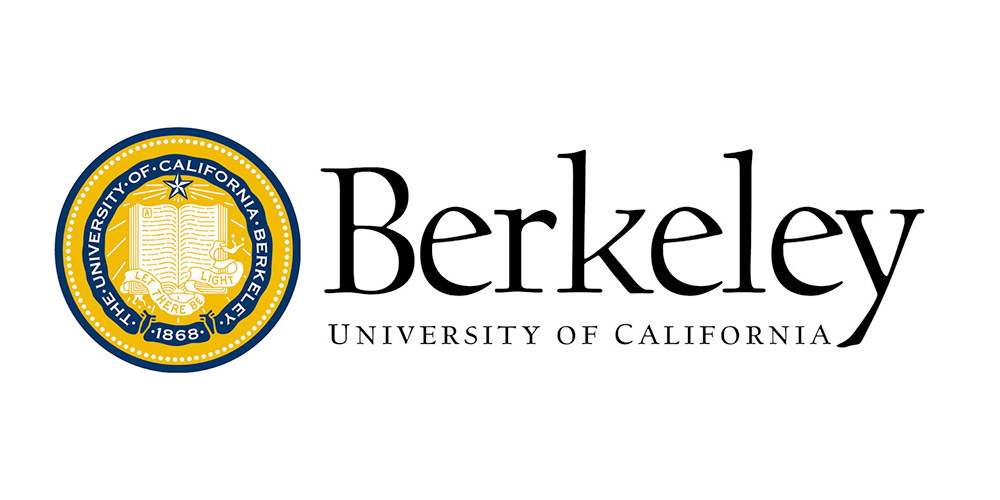
Points: 7
Program Website
Founded in 1868, the University of California-Berkeley is a public research university and a member of the 10-campus University of California System. UC-Berkeley confers a low-cost Bachelor of Science in Nuclear Engineering designed to prepare the next generation of nuclear engineers for the industrial and scientific workforce. The ABET-certified program features basic courses in nuclear technology and science as well as electives in in-depth areas of study. Undergraduates at this top-value university are encouraged to engage in current science and engineering concepts through the nuclear engineering department as well as work in nuclear engineering research laboratories during their studies to gain hands-on experience. Students may also consider pursuing a double-major in nuclear engineering and chemical, mechanical or electrical engineering.
Degree Options:
Bachelor of Science in Nuclear Engineering
In-State Tuition: $14,184
Out-of-State Tuition: $43,176
Student-to-Faculty Ratio: 20:1
Graduation Rate: 91 percent
14. University of Tennessee
Knoxville, Tennessee

Points: 7
Program Website
Recognized as one of the most affordable universities for a nuclear engineering degree, the University of Tennessee is a public research university and the flagship campus of the University of Tennessee System. UT’s Department of Nuclear Engineering provides an affordable degree in nuclear engineering for students looking to contribute to this dynamic field. Students of this cheap nuclear engineering bachelor’s can choose to pursue either a traditional nuclear engineering track or follow a radiological pathway, and coursework will requirements will vary depending on the program chosen. Nuclear engineering majors benefit from the DNE’s association with more than 100 nuclear-related companies located just a short distance away as well as the Y-12 National Security Complex, the nearby Oak Ridge National Laboratory and UCOR at the East Tennessee Technology Park.
Degree Options:
Nuclear Engineering Major, BS in Nuclear Engineering
In-State Tuition: $13,006
Out-of-State Tuition: $31,426
Student-to-Faculty Ratio: 17:1
Graduation Rate: 73 percent
13. Georgia Institute of Technology
Atlanta, Georgia
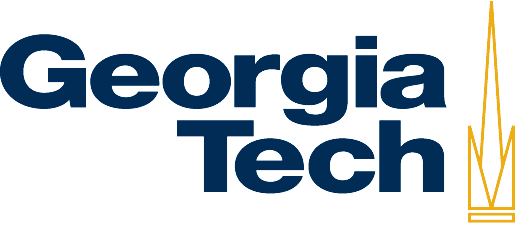
Points: 7
Program Website
Established in 1885 as the Georgia School of Technology, the Georgia Institute of Technology is a public technology-focused postsecondary school and a member-campus of the University System of Georgia. Georgia Tech’s George W. Woodruff School of Mechanical Engineering offers an inexpensive Bachelor of Science in Nuclear and Radiological Engineering comprised of 126 hours of study. Undergraduates can expect courses in radiation detection, thermodynamics, fluid mechanics, nuclear reactor physics and radiation protection engineering as well as engineering economics, design of nuclear and radiological engineering systems and engineering materials. Students at this top school for nuclear engineering are required to complete either the Radiological Systems Engineering or Nuclear Engineering concentration.
Degree Options:
Bachelor of Science in Nuclear and Radiological Engineering (B.S.N.R.E.)
In-State Tuition: $12,424
Out-of-State Tuition: $33,020
Student-to-Faculty Ratio: 18:1
Graduation Rate: 87 percent
12. Texas A&M University
College Station, Texas
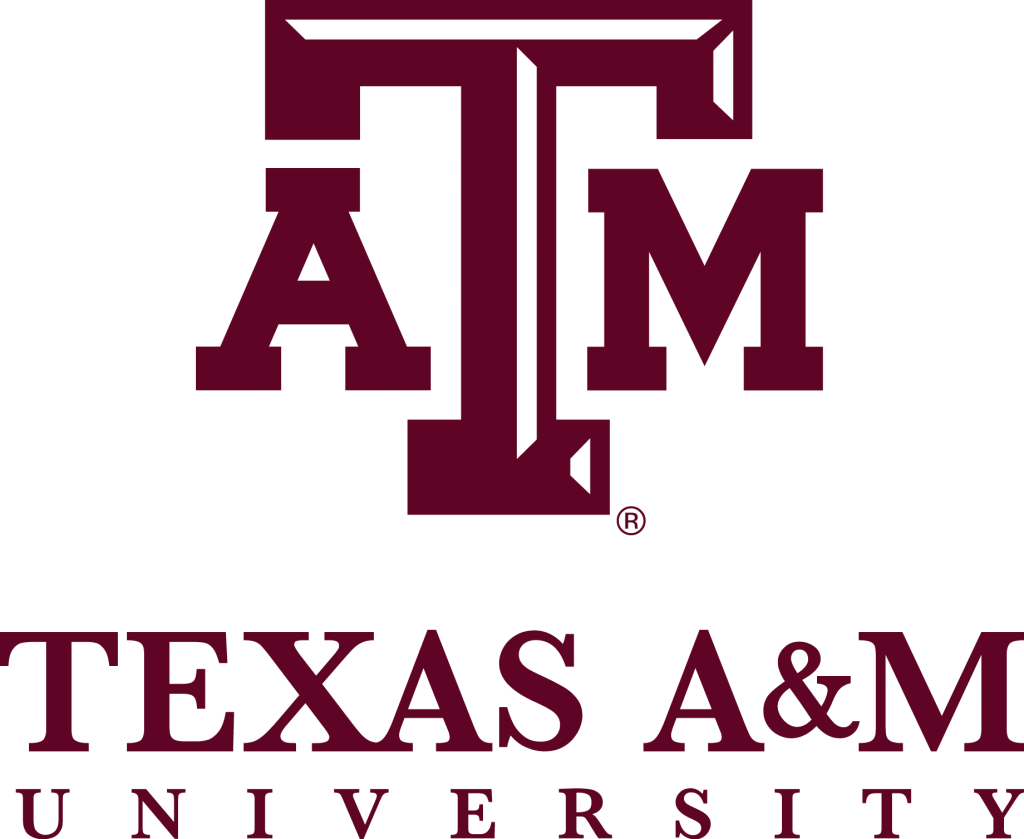
Points: 7
Program Website
Texas A&M University, founded as the Agricultural and Mechanical College of Texas in 1871, is a public research university and a top choice for undergraduates seeking an affordable degree in nuclear engineering. Texas A&M provides a low-cost Bachelor of Science in Nuclear Engineering that produces graduates trained in the areas of radiological health technologies, space applications and nuclear energy production. Although the 128-hour curriculum stresses mathematics and the fundamentals of engineering science, undergraduates of this top university for nuclear engineering may focus their degree through a considerable number of elective options. Students interested in employment within the nuclear power industry may choose to follow the “Power Option Alternative” after graduating — a modified program that places a stronger focus on the skills required for this specific discipline.
Degree Options:
Bachelor of Science in Nuclear Engineering
In-State Tuition: $11,870
Out-of-State Tuition: $37,495
Student-to-Faculty Ratio: 20:1
Graduation Rate: 82 percent
11. Oregon State University
Corvallis, Oregon
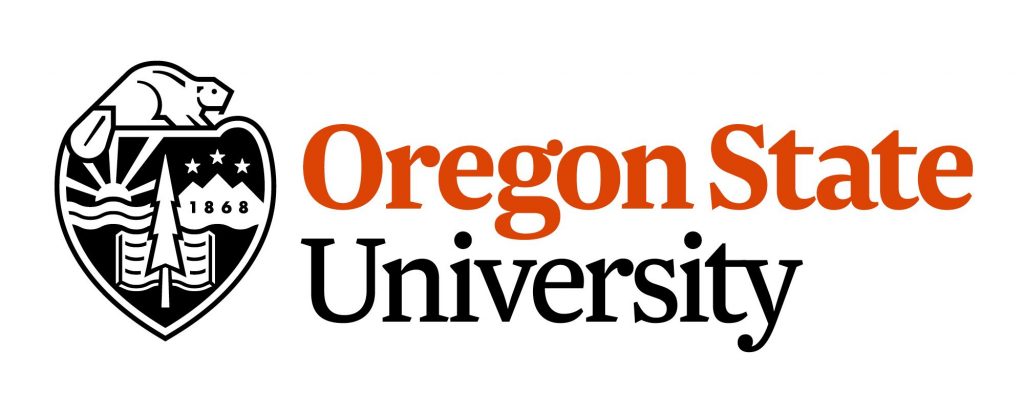
Points: 7
Program Website
Oregon State University, founded in 1868, is the largest public institution of higher learning by enrollment in the state. OSU confers more than 200 undergraduate degrees, including a top Bachelor of Science in Nuclear Engineering that is divided into two components: two years of pre-engineering courses and two years of pro-engineering courses. The high-value ABET-accredited program also offers many opportunities for students to participate in research projects and gain hands-on, real-world experience. OSU students benefit from the knowledge of renowned faculty, state-of-the-art equipment in large-scale test facilities and a solid student-to-faculty ratio that allows for mentoring and individualized studies.
Degree Options:
Nuclear Engineering Undergraduate Major (BS)
In-State Tuition: $11,166
Out-of-State Tuition: $30,131
Student-to-Faculty Ratio: 17:1
Graduation Rate: 67 percent
10. University of Wisconsin
Madison, Wisconsin

Points: 7
Program Website
Established in 1848 when Wisconsin achieved statehood, the University of Wisconsin is a public research university and one of the most affordable schools for a Bachelor’s in Nuclear Engineering degree. UW’s Department of Engineering Physics provides a high-value Bachelor of Science in Nuclear Engineering that consists of coursework in computer methods, heat transfer, thermodynamics, electronics, materials science, mathematics and physics as well as topics in the social sciences and humanities. Students at this top nuclear engineering university devote their third and fourth years primarily to investigating specific nuclear engineering content. The curriculum of this prepares graduates for careers in government and in the nuclear industry as well as for positions in which a broad technical background is required.
Degree Options:
Nuclear Engineering, B.S.
In-State Tuition: $10,555
Out-of-State Tuition: $36,805
Student-to-Faculty Ratio: 17:1
Graduation Rate: 87 percent
9. Kansas State University
Manhattan, Kansas

Points: 7
Program Website
Founded in 1863, Kansas State University was the first land-grant institution of higher learning in the state. Today, KSU is recognized as an affordable university for a nuclear engineering degree, providing a top Bachelor of Science in Mechanical Engineering in which students may complete a concentration in nuclear engineering. The curriculum includes engineering science and application courses in the junior and senior years as well as social science and humanities electives and laboratory courses throughout the program. Students at this low-cost university also participate in an industrial design project and prepare for careers in fields such as business management, urban design, social services, medicine and law as well as in the traditional engineering professions.
Degree Options:
Bachelor of Science in Mechanical Engineering With a Nuclear Option
In-State Tuition: $10,383
Out-of-State Tuition: $25,887
Student-to-Faculty Ratio: 18:1
Graduation Rate: 64 percent
8. Missouri University of Science and Technology
Rolla, Missouri

Points: 7
Program Website
The Missouri University of Science and Technology, founded in 1870 as the Missouri School of Mines and Metallurgy, is a public space- and land-grant institution of higher learning and a member of the University of Missouri System. Missouri S&T’s affordable Bachelor of Science in Nuclear Engineering is an accredited program and the only one of its kind in the state. The curriculum at this cheap university for nuclear engineering is comprised of topics in reactor operations, nuclear technology applications, reactor heat transfer and fluid mechanics, reactor physics and the nuclear fuel cycle. On their way to earning a degree, students of this inexpensive nuclear engineering degree program will have a number of opportunities for hands-on experience with the Missouri S&T Nuclear Reactor — the first on-campus reactor in Missouri.
Degree Options:
B.S. Program in Nuclear Engineering
In-State Tuition: $9,440
Out-of-State Tuition: $26,461
Student-to-Faculty Ratio: 18:1
Graduation Rate: 63 percent
7. Thomas Edison State University
Trenton, New Jersey
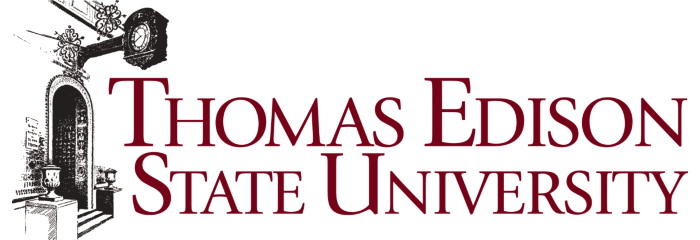
Points: 7
Program Website
One of 11 public universities and colleges in New Jersey, Thomas Edison State University is an institution of higher learning that primarily offers affordable online degree programs that serve the state’s adult and working poulations. Established in 1972, TESU confers an ABET-accredited Bachelor of Science in Nuclear Engineering Technology degree that emphasizes the application and impact of engineering principles on nuclear power generation. This low-cost program is comprised of 126 credits of study and prepares students to work in instrumentation and control technology, quality assurance, reactor operations and other related operations. Areas of focus include electrical theory, radiation effects, reactors and plant systems, fluid mechanics, heat transfer, thermodynamics, nuclear physics for technology and a radiation analysis laboratory. This top online program culminates in a nuclear engineering technology capstone.
Degree Options:
Bachelor of Science (BS) Degree With an Area of Study in Nuclear Engineering Technology
In-State Tuition: $7,519
Out-of-State Tuition: $9,967
Student-to-Faculty Ratio: 15:1
Graduation Rate: 41 percent
6. Purdue University
West Lafayette, Indiana
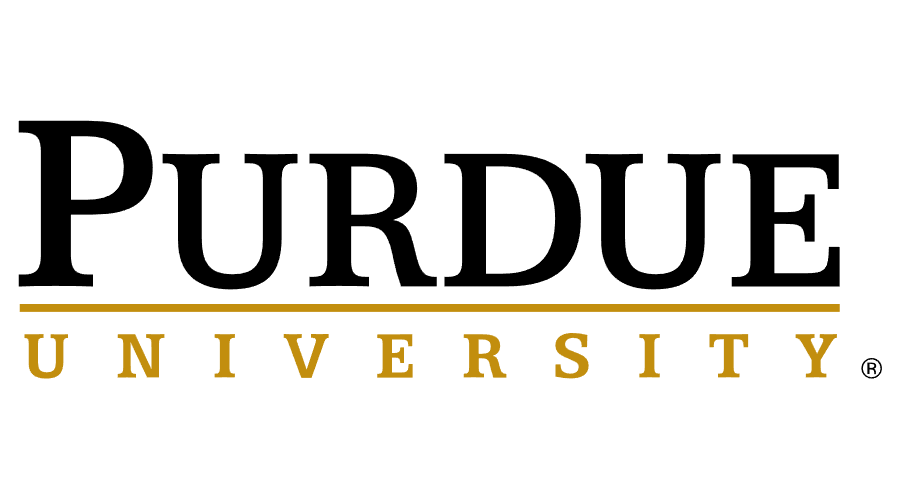
Points: 8
Program Website
Recognized among the top universities for a nuclear engineering degree, Purdue University is a public research institution of higher education and the flagship school of the Purdue University System. Purdue’s Colege of Engineering provides an affordable nuclear engineering degree in the form of a low-cost Bachelor of Science comprised of 126 total credit hours of study, including 41 hours of core nuclear engineering classes, 15 hours of technical electives and 48 hours of mathematics, science and mechanical engineering coursework. Topics of study from this best bachelor’s in nuclear engineering include design in nuclear engineering, nuclear thermal hydraulics, neutron physics, mechanics of materials and an introduction to nuclear engineering.
Degree Options:
Nuclear Engineering, BSNE
In-State Tuition: $9,992
Out-of-State Tuition: $28,794
Student-to-Faculty Ratio: 13:1
Graduation Rate: 81 percent
5. North Carolina State University
Raleigh, North Carolina

Points: 8
Program Website
North Carolina State University is a space-, sea- and land-grant institution of higher education and part of the University of North Carolina System. Established in 1887 as the North Carolina College of Agriculture and Mechanic Arts, NCSU offers a best-value Bachelor of Science in Nuclear Engineering that examines critical areas of the discipline, including radiation safety and shielding, reactor engineering and systems, fluid mechanics, nuclear engineering and physics. Students of this top NC university for nuclear engineering must complete a three-credit nuclear engineering design project to graduate from the program. An accelerated bachelor’s to master’s program is also available for students looking to complete two degrees in a reduced period of time.
Degree Options:
Bachelor of Science in Nuclear Engineering
In-State Tuition: $9,101
Out-of-State Tuition: $28,444
Student-to-Faculty Ratio: 14:1
Graduation Rate: 81 percent
4. Idaho State University
Pocatello, Idaho

Points: 9
Program Website
Recognized as one of the most affordable universities for a nuclear engineering degree, Idaho State University is a public research university that began as Idaho State College in 1947. Today, ISU offers nearly 300 degree programs, including a top-value Bachelor of Science in Nuclear Engineering comprised of 122 credits of study. Undergraduates of this inexpensive nuclear engineering degree program develop a solid foundation in key areas of the discipline through coursework in engineering physics, nuclear fuel cycle systems, reactor physics, energy systems and nuclear power, heat transfer, thermodynamics and mechanical engineering materials. Graduates are prepared for careers in homeland security, medicine, space propulsion and nuclear reactor design.
Degree Options:
B.S. Nuclear Engineering
In-State Tuition: $7,420
Out-of-State Tuition: $22,940
Student-to-Faculty Ratio: 13:1
Graduation Rate: 33 percent
3. University of Florida
Gainesville, Florida

Points: 9
Program Website
A senior member of the State University System of Florida, the University of Florida is a public sea-, land- and space-grant research university that traces its origins back to 1853. UF is recognized among the best-value universities for a nuclear engineering degree, offering a 127-credit Bachelor of Science in Nuclear Engineering in which students may specialize in radiation and biological systems, radioisotopes and nuclear radiation technology, reactor operations or reactor engineering. Outside of the classroom, this cheap nuclear engineering bachelor’s is home to several experimental facilities, including a D-D neutron source for radiation studies, a neutron activation analysis laboratory and a 100-kilowatt research and training reactor.
Degree Options:
B.S. Nuclear Engineering
In-State Tuition: $6,381
Out-of-State Tuition: $28,659
Student-to-Faculty Ratio: 18:1
Graduation Rate: 90 percent
2. United States Military Academy
West Point, New York

Points: 11
Program Website
The United States Military Academy, also known simply as West Point, is one of five four-year federal service academies in the U.S. and a top choice for aspiring nuclear engineers. Here, students may pursue a free Bachelor of Science in Nuclear Engineering and complete coursework in radiological safety, nuclear reactor engineering, thermal-fluid systems, electrical engineering, nuclear engineering and engineering mechanics and design. Graduates are prepared to provide appropriate radiological and nuclear engineering expertise to the U.S. Army. With 100% free tuition, a low student-to-faculty ratio and a solid 85 percent graduation rate, it is no wonder the United States Military Academy takes the number two spot on our list of best affordable bachelor’s in nuclear engineering degrees.
Degree Options:
B.S. in Nuclear Engineering
In-State Tuition: Free
Out-of-State Tuition: Free
Student-to-Faculty Ratio: 7:1
Graduation Rate:85 percent
1. United States Naval Academy
Annapolis, Maryland

Points: 11
Program Website
The United States Naval Academy, a federal service academy established in 1845, educates officers for commissioning primarily into the U.S. Marine Corps and the U.S. Navy. USNA offers the best undergraduate nuclear engineering program that trains graduates in the maintenance and operation of highly technical systems. After completing fundamental courses in engineering as well as introductory classes in nuclear physics and nuclear engineering, undergraduates take courses in radiation engineering, nuclear energy conversion, reactor design and reactor physics. This top program culminates with a capstone requirement that allows midshipmen to incorporate what they have learned into a single project. The USNA boasts 100 percent free tuition, a fantastic 8:1 student-to-faculty ratio and a whopping 91% graduation rate — one of the highest on our list.
Degree Options:
Bachelor’s Degree in Nuclear Engineering
In-State Tuition: Free
Out-of-State Tuition: Free
Student-to-Faculty Ratio: 8:1
Graduation Rate: 91 percent
Frequently Asked Questions
What are the Career Options for a Bachelor’s in Nuclear Engineering Degree?
Nuclear engineers are responsible for researching and developing the processes, systems and instruments used to derive benefits from radiation and nuclear energy. While nuclear engineers are typcially employed in offices, work environments can vary depending on the industry in which they are employed. Although most upper-level positions in nuclear engineering require a minimum of a master’s degree, undergraduates who have earned a bachelor’s in nuclear engineering are prepared for entry-level employment in in-demand positions such as:
- Nuclear Engineers
- Nuclear Technicians
- Operations Engineers
- Reactor Engineers
- Radiation Engineers
- Nuclear Steam Supply System Engineers
- Atomic Process Engineers
In addition, because nuclear engineering and science encompasses such a broad range, undergraduates may also enjoy teaching and research jobs at universities, or they may find themselves employed in industrial and government laboratories or in power plants. Nuclear engineers may also find themselves designing domestic energy policies, attending medical school, improving aircraft components, designing new reactors, creating interactive art and science displays or managing hedge funds.
Licensure and/or certification is not required for entry-level positions in nuclear engineering. However, a graduate may pass the Principles and Practice of Engineering (PE) examination and become licensed, which allows for higher levels of independence and leadership, later in his or her career. PEs are responsible for providing services directly to the public, signing off on projects and overseeing the work of other engineers.
What is the Salary Potential for a Nuclear Engineering Degree?
As we have seen, earning a bachelor’s degree in nuclear engineering opens up doors to many career opportunities. Therefore, it can be difficult to pinpoint the exact salary potential one can expect with this undergraduate degree. In addition, salary earnings depend on a number of factors other than position, including level of experience in the field, level of education and the location in which one intends to work. To get a better idea of how much a graduate can expect to earn, we turned to the U.S. Bureau of Labor Statistics (BLS) for data.
According to the BLS, nuclear engineers earned $107,600 per year, or $51.73 per hour, as of May 2018. The top 10 percent earned more than $162,360, while the lowest 10 percent earned less than $68,560. The median annual wages for nuclear engineers in the top industries in which they were employed include:
- Engineering services: $128,030
- Scientific research and development services: $121,410
- Electric power generation: $109,910
- Federal government, excluding postal service: $91,890
- Manufacturing: $91,420
Similarly, nuclear technicians assist engineers, physicists and other professionals in nuclear energy production and nuclear research. Although an associate degree is typically the minimum education required for employment, those with a bachelor’s degree may be entitled to command a higher salary than what is reported by the BLS. As of May 2018, nuclear technicians earned $79,140 per year, or $38.05 per hour. The highest 10 percent of nuclear technicians earned more than $114,670, while the lowest 10 percent earned less than $49,820. The top-paying industries for this occupation and the median annual wages include:
- Electric power distribution, transmission and generation: $87,690
- Employment services: $77,360
- Engineering services: $68,390
- Manufacturing: $58,040
What Will You Learn in a Bachelor’s in Nuclear Engineering Degree Program?
Depending on the career you would like to pursue, graduate education may be a requirement for employment as is the case for research or design nuclear engineers, for instance. Graduate-level programs involve significant work in engineering design, physics and math, while both government and private research jobs typically require a doctorate in nuclear engineering. However, the educational and curriculum requirements for entry-level nuclear engineers are less rigorous; a Bachelor’s in Nuclear Engineering is the most common qualification. This program consists of heavy course loads in communication, the humanities, technology, biology, calculus, physics, chemistry and science as well as nuclear engineering basics such as:
- Electromagnetism
- Nuclear materials
- Fuel cycles
- Radiation safety
- Nuclear reactor systems
- Fundamentals of nuclear engineering and energy
The most integrated of all engineering disciplines, nuclear engineering involves the study of many components of nuclear systems, including fusion reactors, ultrasensitive contraband detectors, nuclear fission reactors and medical imaging. To become experts in their field, nuclear engineers will tackle coursework in materials science, physics, thermodynamics and electronics. An undergraduate nuclear engineering and science program focuses on the fundamentals of nuclear processes, including their interactions, production and radiation measurements. Students also incorporate thermal-fluid engineering, computer methods and electronics — all critical tools for a successful career in nuclear engineering.
Whether you have a specific career path in mind or you are simply interested in learning what an undergraduate nuclear engineering degree can do for you, there is no doubt that nuclear engineering is a dynamic and lucrative field. As you begin to research and narrow down your options in hopes of finding the best program to meet your needs and professional goals, we hope that our list of the top 25 best affordable Bachelor’s in Nuclear Engineering degrees serves as a helpful starting point.
AS Staff
This concludes our ranking of the top 25 best affordable bachelor’s in nuclear engineering degrees.
Other Rankings of Interest:
50 Best Affordable Software Engineering Degree Program (Bachelor’s)
15 Most Affordable Ph.D in Engineering Management Online
25 Most Affordable Online Master’s in Civil Engineering
15 Best Affordable Mechanical Engineering Degree Programs (Bachelor’s)
The 50 Most Affordable Colleges with the Best Return
The 20 Most Affordable Online Colleges
40 Best Affordable Accelerated 4+1 Bachelor’s to Master’s Degree Programs
40 Best Affordable One-Year Accelerated Master’s Degree Programs

 The Best Colleges
The Best Colleges The Lowest Costs
The Lowest Costs The Highest Returns
The Highest Returns